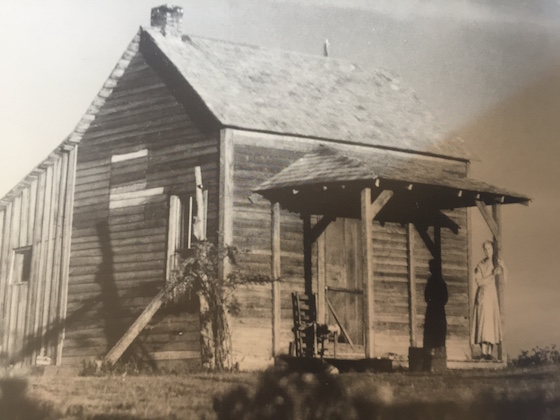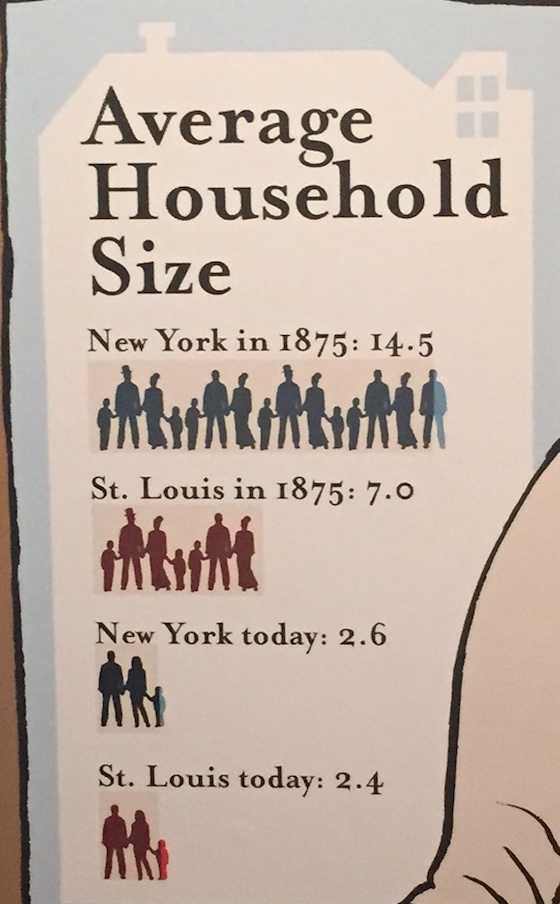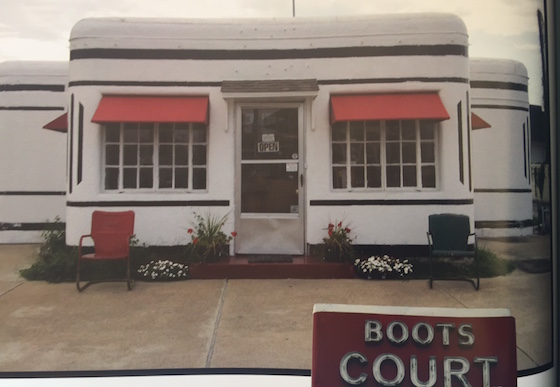In all the excitement of the “micro housing revolution”, it’s been forgotten that tiny homes are not something new. In fact, tiny homes are the oldest dwellings in the U.S. So the new focus on living in smaller quarters is simply a return to the past. So why did taste in homes change from small to large, and why is it changing back?
In the early days, you had to build it yourself
Maybe the key reason that homes were originally small was that the owner had to build it themselves. Ever see Lincoln’s log cabin that he grew up in? It’s smaller than your bedroom. When you have to cut the lumber and build the roof, you don’t shoot for too large a structure. And, even if you did, where would you get the building materials? There were no Home Depots in 1850.
And then there was a matter of living within your budget
By the late 1800s, you didn’t have to build your home yourself in most of America, but you still had to pay for it. Mortgages in the 1920s required 50% down payment – so a $20,000 house required $10,000 cash down. So even if the buyer wanted something bigger, they didn’t have the cash to pull it off. Bankers were not aggressive in home loans in the old days, and would never even consider allowing a home buyer to pay more than their budget would allow.
But construction methods changed
The 1950s ushered in many changes in America, and one was the way that homes were built. Slab foundation and tract houses meant less expensive construction methods and more home for the dollar. Sure, these homes did not deliver the craftsmanship of the early days, but growing American families were willing to sacrifice artifice for more bedrooms.
And lending became more aggressive
There had never been a period of time in American history with less stringent lending requirements for mortgages than the period that began in the 1990s. The cycle culminated in the “zero down, no income documentation” loan, which virtually meant that a panhandler could buy a $250,000 custom home with no pushback. So home sizes just took off and never looked back. Bathrooms became as large as bedrooms, and bedrooms became as large as sports stadiums.
Don’t forget the “me” generation and “keeping up with the Jones”
Helping to fuel the crisis was the vanity of spoiled homeowners who wanted to build the biggest house on the block. Case in point the home “Versailles” built by the Florida time share king David Siegel and coming in at 90,000 square feet, to house a family of ten – about 9,000 square feet per person. Does that sound reasonable to you?
But then came the mortgage collapse of 2008
The loose lending standards ultimately ended in a mortgage melt-down. Suddenly, those folks who wanted to build McMansions and homes they could not afford found themselves repossessed and living in apartments. And the new mortgage standards of 20% down and good credit have ceased the ability to buy more than you can afford.
And our households are becoming smaller
The “Baby Boomers” (those born between 1946 and 1964, and the very folks that started the home boom) are now downsizing. They are retiring at a rate of 10,000 per day, and selling their home is an important piece of their retirement plan. With no other dependents living at home, this group needs smaller space.
And the prices are becoming larger
The price of housing in America, meanwhile, continues to move into rarified territory, with the median home price in the U.S. of nearly $200,000. This has created an environment in which many young people cannot afford a conventional home, at the same time that the older Americans are downsizing.
And Americans are becoming poorer
The United States is becoming a nation of progressively lower incomes. Roughly 20%+ of the U.S. population is near poverty level, and over 50% of Americans are on some form of social subsidy. As a result, there is no money to buy every more expensive houses at ever more conservative loan terms.
So the return of “tiny houses” was fairly predictable
The end of the “big house” era and the return to the “tiny house” era was, as a result, fairly predictable. But it’s more than just a fad. All of the megatrends that created the return to “tiny” are going to be with us for decades. So just how far the “tiny house” movement will take us is not yet known. But it’s going to be extremely interesting to see how it matures. And this will have a profound – and positive – effect on the mobile home park industry.
Conclusion
Tiny houses are not a new concept. But they are a very worthwhile concept. Small houses are more reflective of the new America, and that’s a setting that mobile home park investments flourish in.



